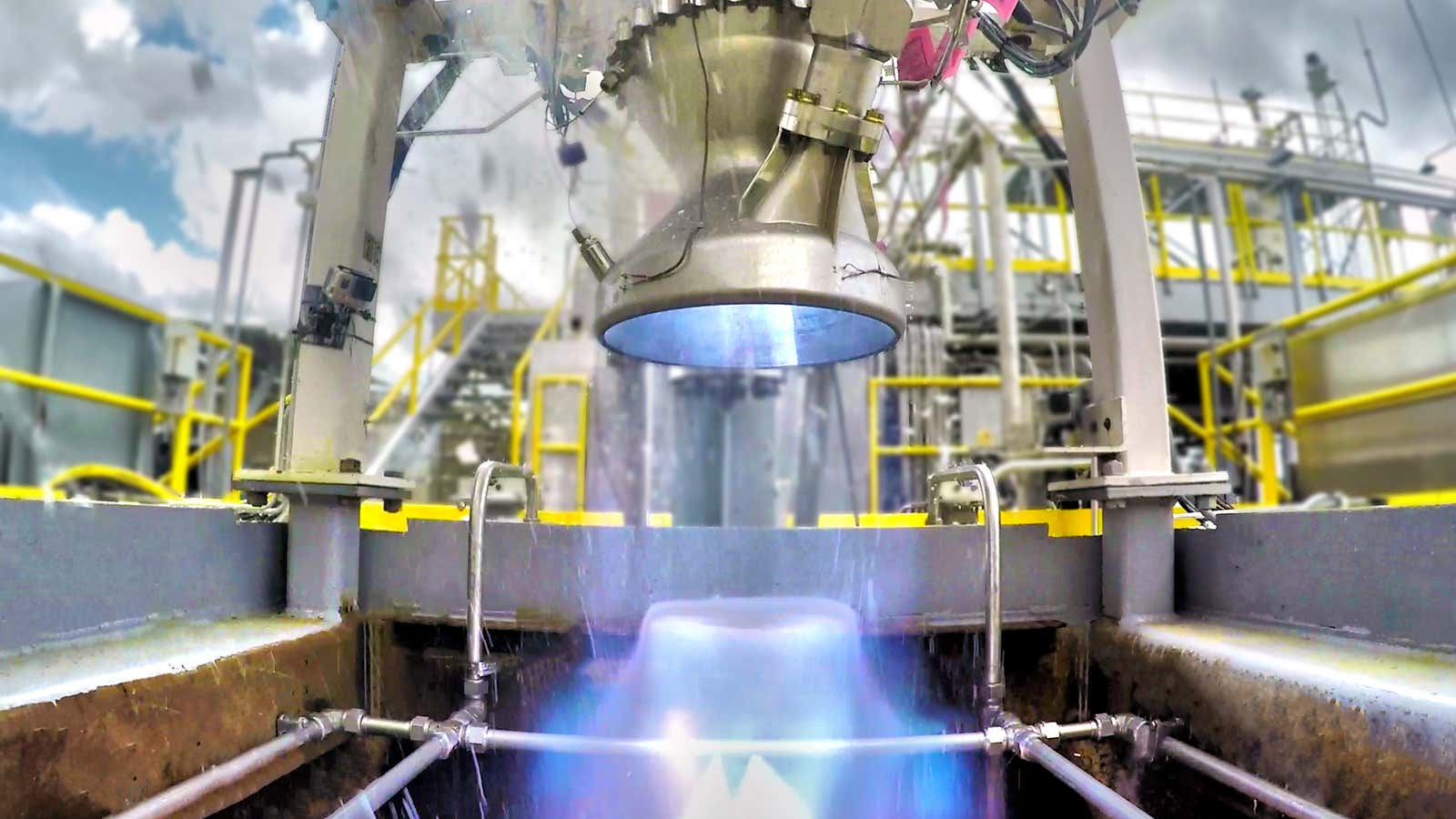SpaceX didn’t just reinvigorate the rocket industry—it seeded an eco-system of new space technology companies.
Relativity Space is one, a company that hopes to use its advanced 3D printer to assemble virtually an entire spacecraft, engines and all, driving down the cost of getting to space. It was founded by two young engineers who cut their teeth at SpaceX and Blue Origin, Jeff Bezos’ space company.
Today (Aug. 20), the firm announced that Tim Buzza, one of the earliest employees at SpaceX, will become an official advisor.
Buzza will advise the company on “everything from launch site selection and trades, structures and avionics, architecture for the rocket, how we’re going to organize the company structure,” Tim Ellis, Relativity’s CEO, told Quartz.
Buzza spent the first part of his career as engineer at McDonnell Douglas and then Boeing before joining the rag-tag band of engineers who signed on to Elon Musk’s rocket company. He spent 12 years helping the company realize its Falcon 9 rocket and Dragon spacecraft before heading to Virgin Orbit, Richard Branson’s bet on launching satellites from planes. He left Virgin Orbit earlier this year.
“When I was at SpaceX, Tim’s stellar reputation for breadth and depth of engineering and operations was legendary in the industry,” Jordan Noone, Relativity’s co-founder, told Quartz.
It’s not the only big hire the company, founded in 2015, has made this year. It also brought onboard Chris Newton, a launch operations engineer who worked at Virgin Orbit and SpaceX, who helped set up the company’s launchpads and was also involved in the robotic barge where its rockets land at sea. Relativity also hired James Harris, a former engineer at Waymo, Alphabet’s self-driving car company, who spent eight years at Blue Origin, leading testing for its New Shepard rocket.
In the space industry, it’s common for companies to draw on distinguished advisors, since much of the accrued knowledge of how to build and launch rockets is siloed at corporate test facilities or hard-won through experience.
When SpaceX was launching its first rockets, its executives took advice (not always happily) from Pete Worden, a retired general who worked on the Strategic Defense Initiative, while Blue Origin had James French, a veteran aerospace engineer who began his career with the Apollo program, on hand to proffer guidance.
Relativity has fired up its 3D-printed engine more than 100 times, and is currently preparing to begin testing the second stage of its rocket, Terran-1. The company plans to launch into orbit in 2020.
